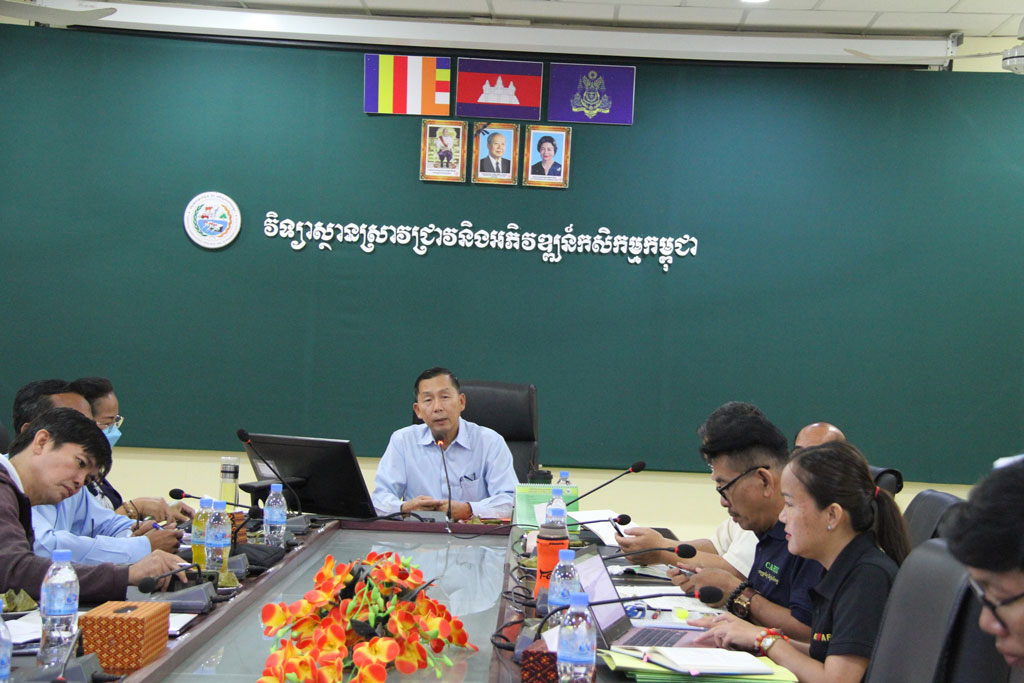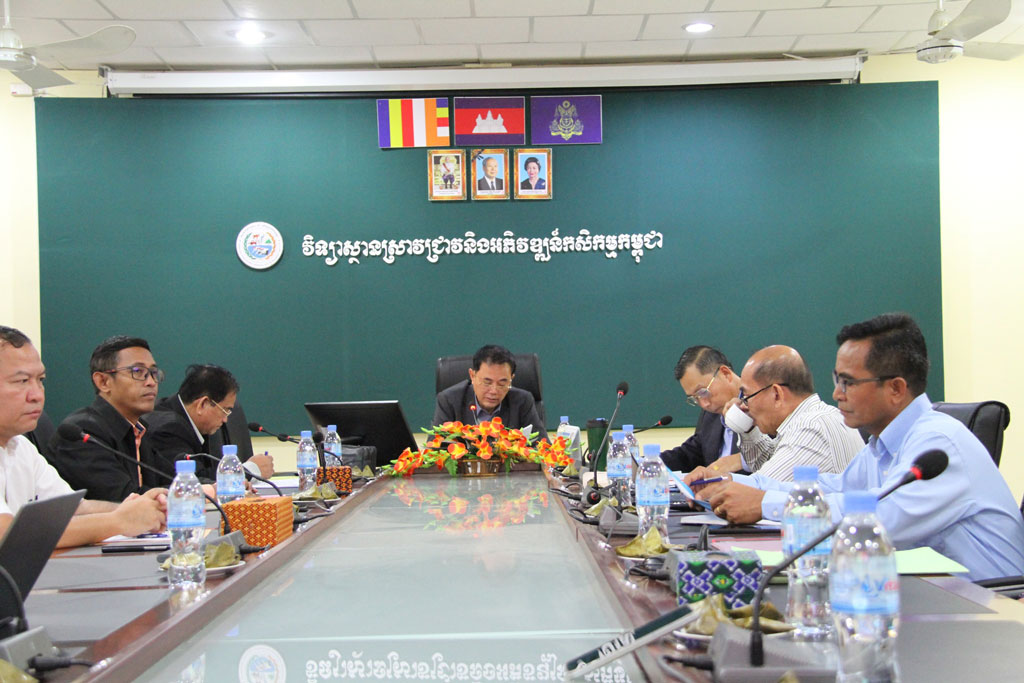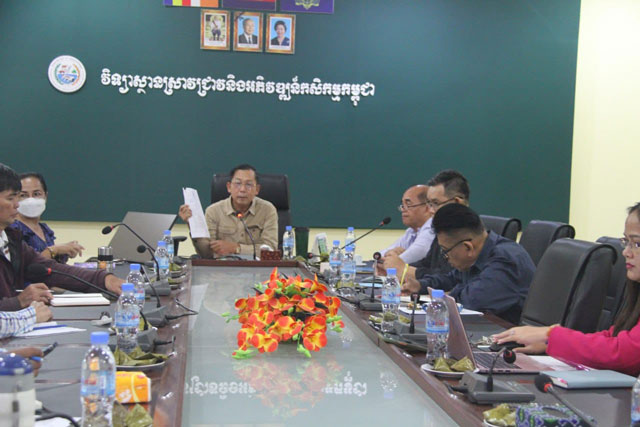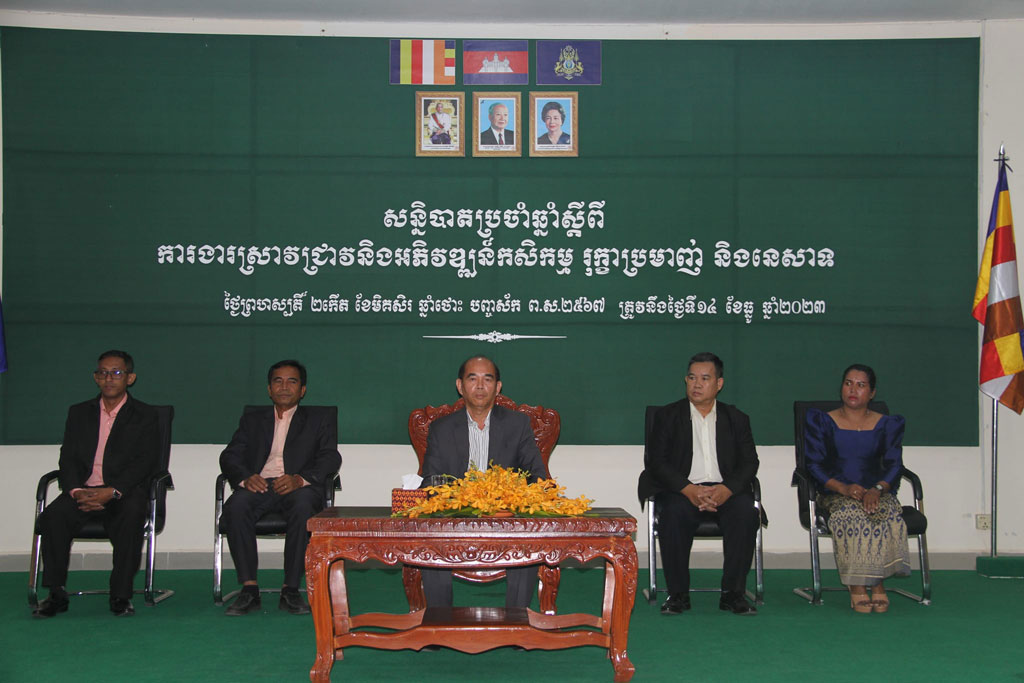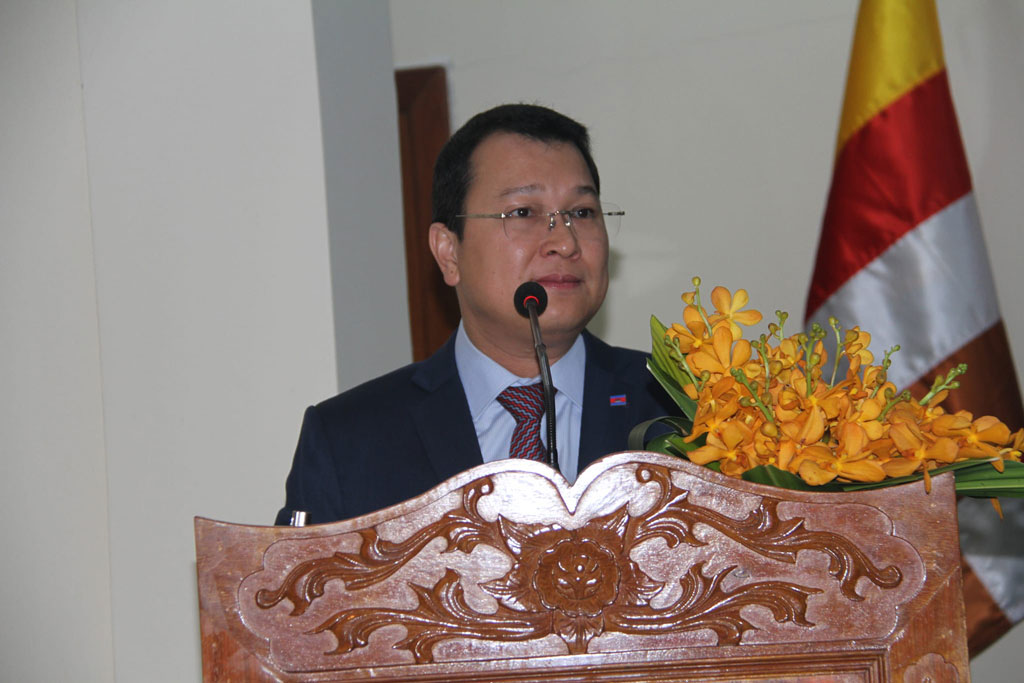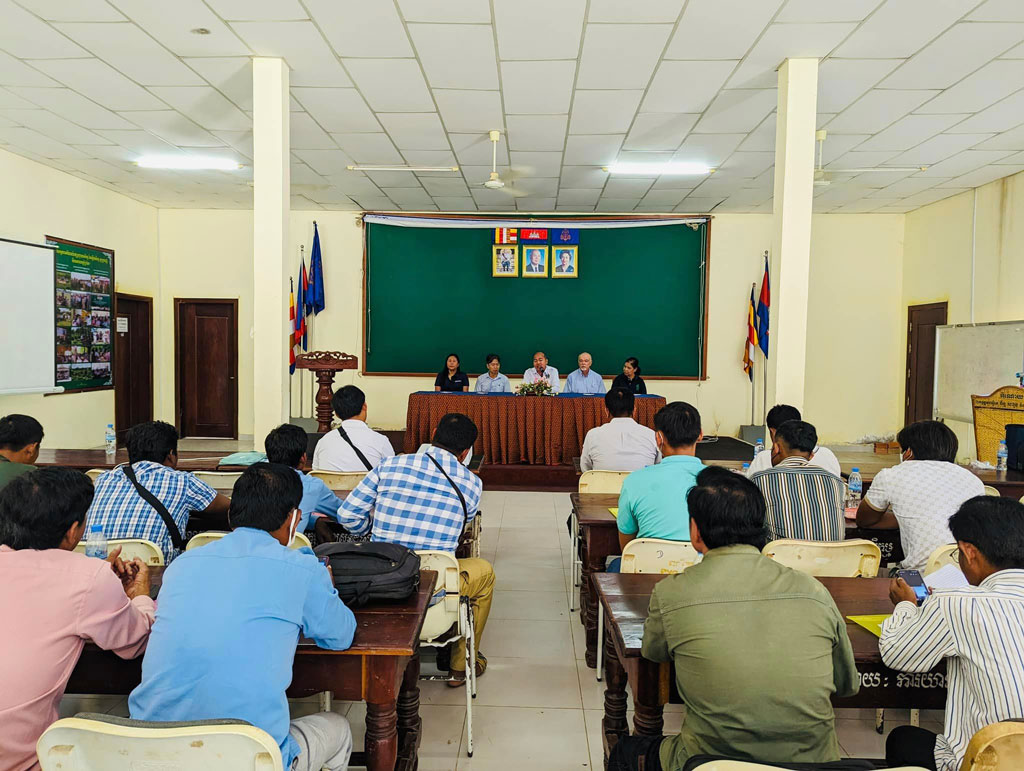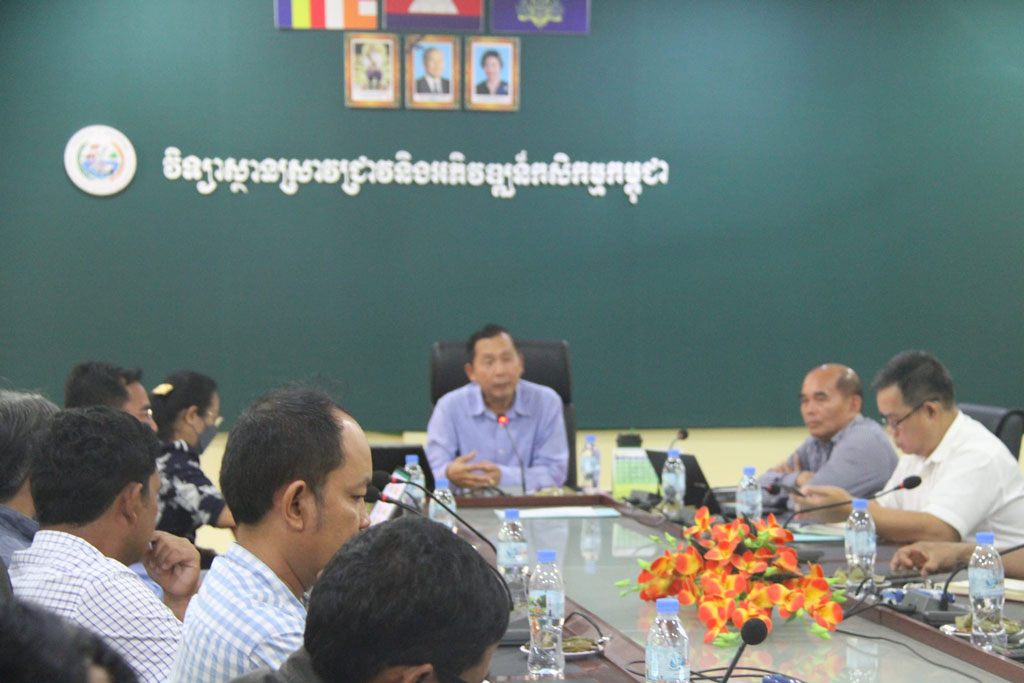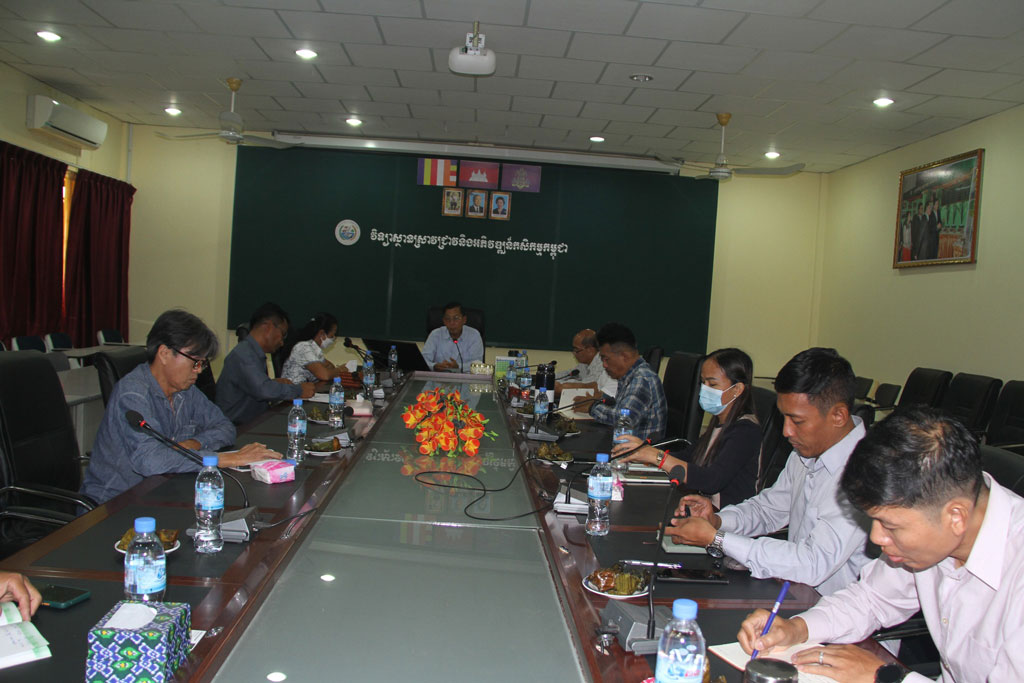ព័ត៌មាន និងព្រឹត្តិការណ៍ចុងក្រោយ
ចេញផ្សាយ ០២ កុម្ភៈ ២០២៤
61
នៅព្រឹកថ្ងៃសុក្រ ៨រោច ខែបុស្ស ឆ្នាំថោះ បញ្ចាស័ក ព.ស.២៥៦៧ ត្រូវនឹងថ្ងៃទី០២ ខែកុម្ភះ ឆ្នាំ២០២៤ វិទ្យាស្ថានស្រាវជ្រាវនិងអភិវឌ្ឍន៍កសិកម្មកម្ពុជាបានបើកកិច្ចប្រជុំអចិន្ត្រៃយ៍...
ចេញផ្សាយ ១០ មករា ២០២៤
61
នៅព្រឹកថ្ងៃពុធ ១៤រោច ខែមិគសិរ ឆ្នាំថោះ បញ្ចស័ក ព.ស ២៥៦៧ ត្រូវនឹងថ្ងៃទី១០ ខែមករា ឆ្នាំ២០២៤ វិទ្យាស្ថានស្រាវជ្រាវនិងអភិវឌ្ឍន៍កសិកម្មកម្ពុជា បានបើកកិច្ចប្រជុំក្រុមប្រឹក្សាភិបាល លើកទី១៤ អាណត្តិទី១ ក្រោមអធិបតីភាព ឯកឧត្តមបណ្ឌិត មាស ពិសិដ្ឋ...
ចេញផ្សាយ ០៥ មករា ២០២៤
61
នាព្រឹក ថ្ងៃសុក្រ ៩ រោច ខែមិគសិរ ឆ្នាំថោះ បញ្ចស័ក ពុទ្ធសករាជ ២៥៦៧ ត្រូវនឹងថ្ងៃទី៥ ខែមករា ឆ្នាំ២០២៤ វិទ្យាស្ថានស្រាវជ្រាវនិងអភិវឌ្ឍន៍កសិកម្មកម្ពុជា បានប្រជុំអចិន្ត្រៃយ៍ប្រចាំខែមករា...
ចេញផ្សាយ ១៥ ធ្នូ ២០២៤
61
នៅព្រឹកថ្ងៃសុក្រ ៣រោច ខែមិគសិរ ឆ្នាំថោះ បញ្ចស័ក ព.ស ២៥៦៧ ត្រូវនឹងថ្ងៃទី១៥ ខែធ្នូ ឆ្នាំ២០២៣ វិទ្យាស្ថានស្រាវជ្រាវនិងអភិវឌ្ឍន៍កសិកម្មកម្ពុជា (CARDI)...
ចេញផ្សាយ ១៤ ធ្នូ ២០២៤
61
នៅព្រឹកថ្ងៃព្រហស្បតិ៍ ២កើត ខែមិគសិរ ឆ្នាំថោះ បញ្ចស័ក ព.ស.២៥៦៧ ត្រូវនឹងថ្ងៃទី១៤ ខែធ្នូ ឆ្នាំ២០២៣ ឯកឧត្តម ឌិត ទីណា រដ្ឋមន្ត្រីក្រសួងកសិកម្ម រុក្ខាប្រមាញ់...
ចេញផ្សាយ ០៦ ធ្នូ ២០២៤
61
នៅថ្ងៃច័ន្ទ ៧រោច ដល់ថ្ងៃអង្គារ ៨រោច ខែកកត្កិក ឆ្នាំថោះ បញ្ចស័ក ព.ស ២៥៦៧ ត្រូវនឹងថ្ងៃទី០៤ ដល់ថ្ងៃទី០៥ ខែធ្នូ ឆ្នាំ២០២៣ ក្រុមការងាររបស់ការិយាល័យស្រាវជ្រាវសេដ្ឋកិច្ចសង្គមនៃវិទ្យាស្ថានស្រាវជ្រាវ និងអភិឌ្ឍន៍កសិកម្មកម្ពុជា បានសហការជាមួយមន្ទីរកសិកម្ម រុក្ខាប្រមាញ់ និងនេសាទខេត្តព្រៃវែង និងខេត្តតាកែវ និងសាកលវិទ្យាល័យ...
ចេញផ្សាយ ០១ ធ្នូ ២០២៤
61
នាព្រឹកថ្ងៃសុក្រ ៤រោច ខែកត្តិក ឆ្នាំថោះ បញ្ចស័ក ព.ស.២៥៦៧ ត្រូវនឹងថ្ងៃទី០១ ខែធ្នូ ឆ្នាំ២០២៣ វិទ្យាស្ថានស្រាវជ្រាវនិងអភិវឌ្ឍន៍កសិកម្មកម្ពុជា បានប្រជុំអចិន្ត្រៃយ៍ប្រចាំខែធ្នូ ឆ្នាំ២០២៣ ក្រោមអធិបតីភាពរបស់លោក ឡោ ប៊ុណ្ណា នាយកវិទ្យាស្ថាន...
ចេញផ្សាយ ១៣ វិច្ឆិកា ២០២៤
61
នៅព្រឹកច័ន្ទ ១កើត ខែកត្តិក ឆ្នាំថោះ បញ្ចាស័ក ព.ស.២៥៦៧ ត្រូវនឹងថ្ងៃទី១៣ ខែវិច្ឆិកា ឆ្នាំ២០២៣ វិទ្យាស្ថាន...
វិទ្យាស្ថានស្រាវជ្រាវនិងអភិវឌ្ឍន៍កសិកម្មកម្ពុជា
ផ្លូវជាតិលេខ ៣ សង្កាត់ប្រទះឡាង ខណ្ឌកំបូល
រាជធានីភ្នំពេញ ព្រះរាជាណាចក្រកម្ពុជា
ទូរស័ព្ទលេខៈ +៨៥៥ ២៣ ៦៣១ ៩៣៤ កូដតំបន់ៈ ១២៤១៣
គេហទំព័រៈ www.cardi.org.kh


